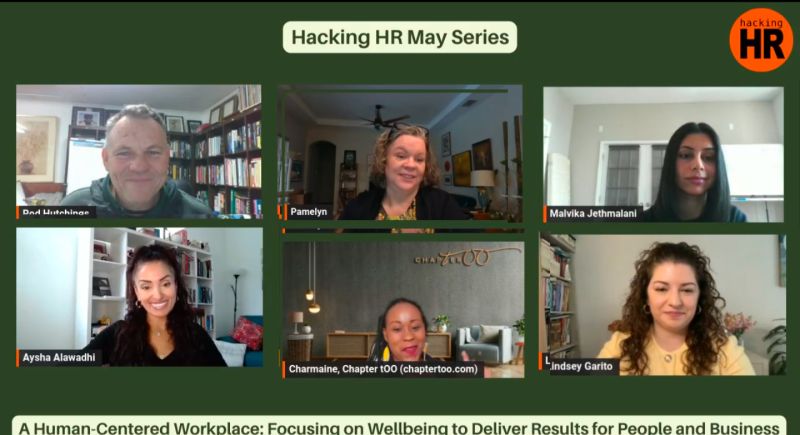
In today’s competitive landscape, a human-centered workplace is essential for delivering sustainable business results. As I had the opportunity to moderate the recent panel on “A Human-Centered Workplace: Focusing on Wellbeing to Deliver Results for People and Business”, we explored how well-being directly impacts both individuals and organizations.
Here are some key insights from the discussion:
- Wellbeing as a Strategic Imperative: Panelists agreed that wellbeing isn’t just a “nice-to-have”; it’s critical for business success. Happy, healthy employees are more engaged and innovative, driving better results. Investing in well-being leads to higher employee retention, satisfaction, and productivity.
- Data-Driven Decisions: Organizations need to use data to understand the needs of their workforce and develop targeted well-being initiatives. Utilizing employee feedback and metrics like engagement and productivity helps HR departments implement programs that align with both organizational goals and employee desires.
- Tailored Wellbeing Programs: Wellbeing looks different for every individual. It’s important for companies to create inclusive, holistic programs that address not just physical health but also mental, financial, and social wellbeing. As the panelists highlighted, meeting employees where they are is key to creating lasting impact.
- Management’s Role in Wellbeing: Leaders and managers play a pivotal role in fostering a culture of wellbeing. By modeling healthy behaviors, ensuring psychological safety, and encouraging open communication, managers can create an environment where employees feel valued and supported.
- Inclusivity and Flexibility in Hybrid Work: As hybrid work becomes the norm, technology can be leveraged to ensure remote workers feel just as included as those in the office. It’s important to maintain engagement through regular check-ins and personal connections, even when employees are physically distant.
- Measure and Adjust: The impact of wellbeing programs must be regularly measured, and strategies should evolve as the workforce changes. Consistent feedback loops and the ability to pivot based on new data ensure that well-being programs stay relevant and effective.
This panel underscored that by centering wellbeing, organizations can not only support their employees but also enhance their bottom line. When we take care of people, results follow.
For those who missed it, you can watch the full panel discussion here: A Human-Centered Workplace: Focusing onWellbeing to Deliver Results for People and Business.
#Wellbeing #EmployeeEngagement #Leadership #HR #WorkplaceWellness #BusinessSuccess #HybridWork #MentalHealth
A heartfelt thank you to our incredible panelists:
Charmaine Green-Forde, SPHR, SHRM-SCP
Pamelyn Eichelberger, SPHR, CSM
Malvika Jethmalani
Lindsey Garito, SPHR, SHRM-SCP